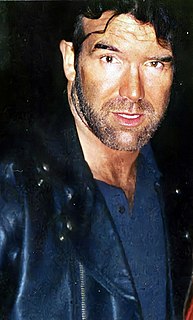A Quote by Molly Ivins
During a recent panel on the numerous failures of American journalism, I proposed that almost all stories about government should begin: “Look out! They're about to smack you around again!
Related Quotes
Whether you look at 'Glee' and its normalization of gay identity or you look at the work of Martin Scorsese and the Italian-American community, American culture is able to take these stories, which are seen as marginalized, and just turn them into American stories. And you don't think twice about it.
They are having a panel look into the intelligence failures in Iraq. It is a seven-person panel and it will include Senator John McCain, but the findings from this panel will not be issued until after the election. President Bush says the commission can go off and report back in a year, you know, the same way it works in the Texas National Guard.
One of the things that's pretty unique about nu shu, when you look especially at these old letters and stories that have been saved, is that there are certain lines that are very standard that are used again and again. It's almost like a formula in a sense, so that these certain lines come up again and again.
The government does not need to know more about what we are doing. We need to know more about what the government is doing. We should be thankful for individuals like Edward Snowden and Glenn Greenwald who see injustice being carried out by their own government and speak out, despite the risk. They have done a great service to the American people by exposing the truth about what our government is doing in secret.
I try to keep deep love out of my stories because, once that particular subject comes up, it is almost impossible to talk about anything else. Readers don't want to hear about anything else. They go gaga about love. If a lover in a story wins his true love, that's the end of the tale, even if World War III is about to begin, and the sky is black with flying saucers.
As I set out to begin photographing Shanghai, I encountered the insider/outsider phenomena in the most personal of ways. You would walk into an old neighborhood in the center of city, and people would begin to point at you. People would begin to talk about you, spreading the word about the outsider who has wandered into their midst, look at him, he's got a camera, what's he doing, is this allowed, is this OK, how should be respond to him.
You look at the Koran or the Bible, they all tell the same stories. You see them as the stories of the Middle East. The stories reflect who these people were in the Middle East, and this is where Western culture came from. All our literature is basically influenced by these great myths. So I'm fascinated by it. You could almost say I'm obsessed with it. But if you're asking about the effect of religion on my life - almost everything I do is opposed to the practice of religion.

































